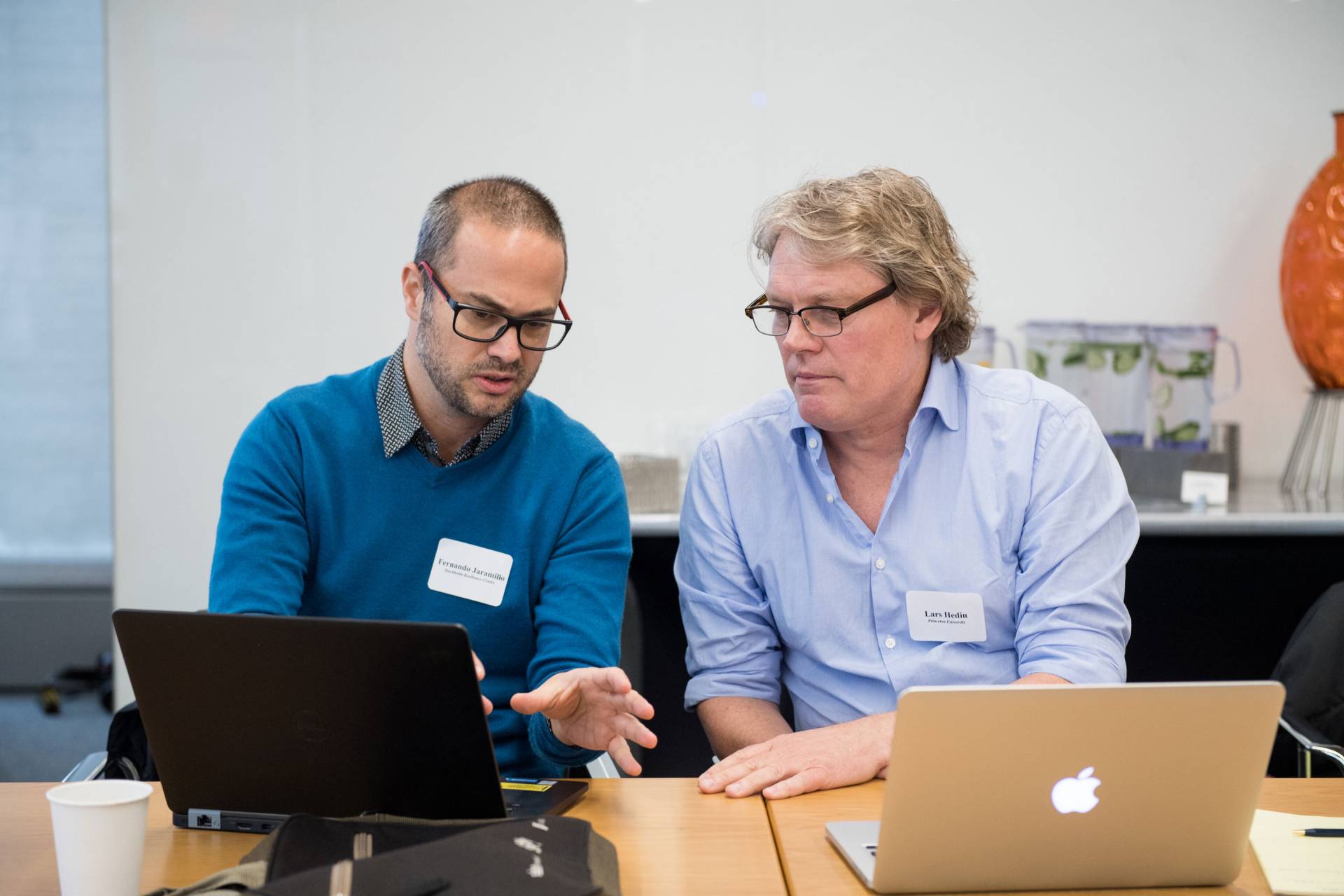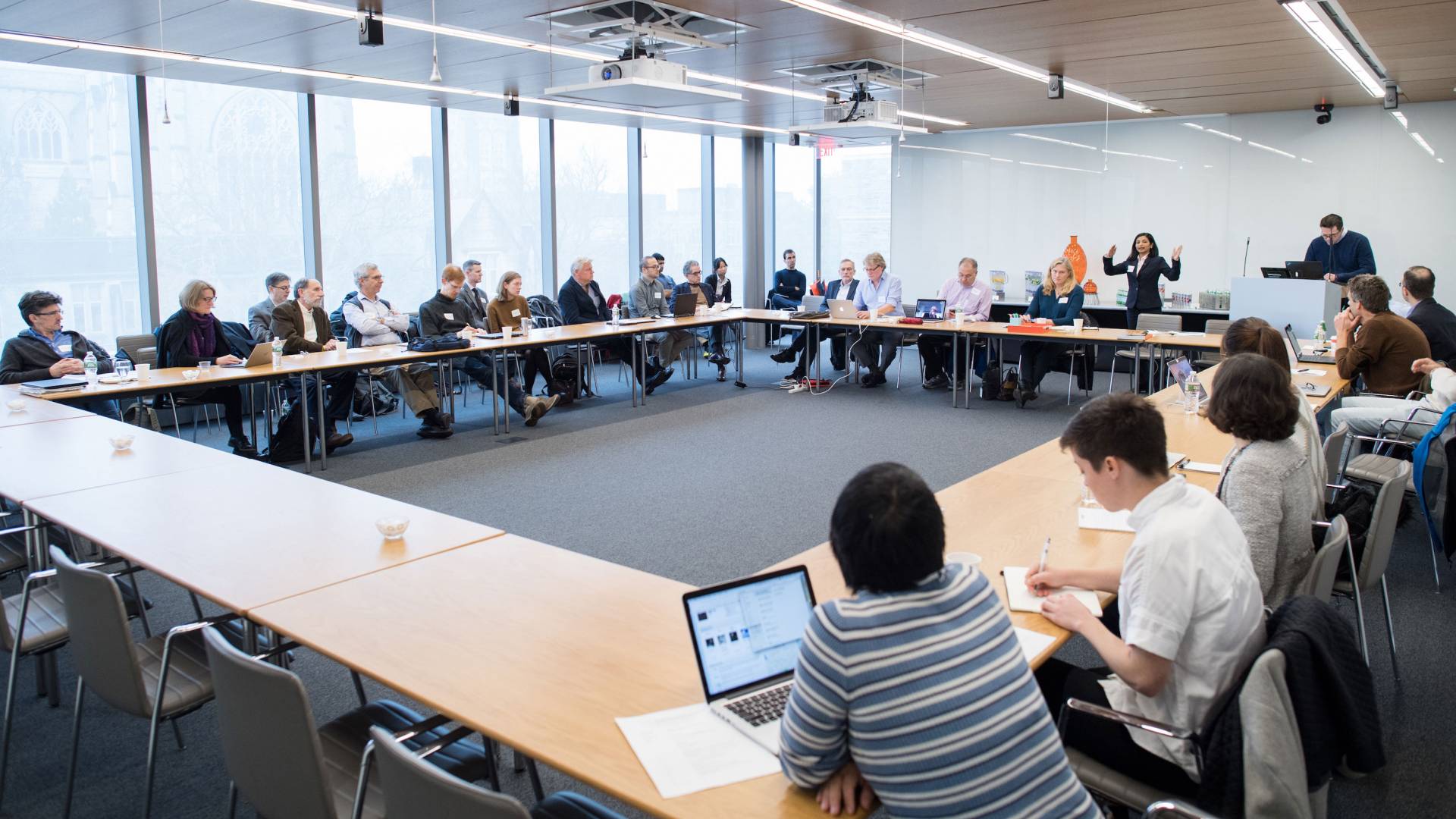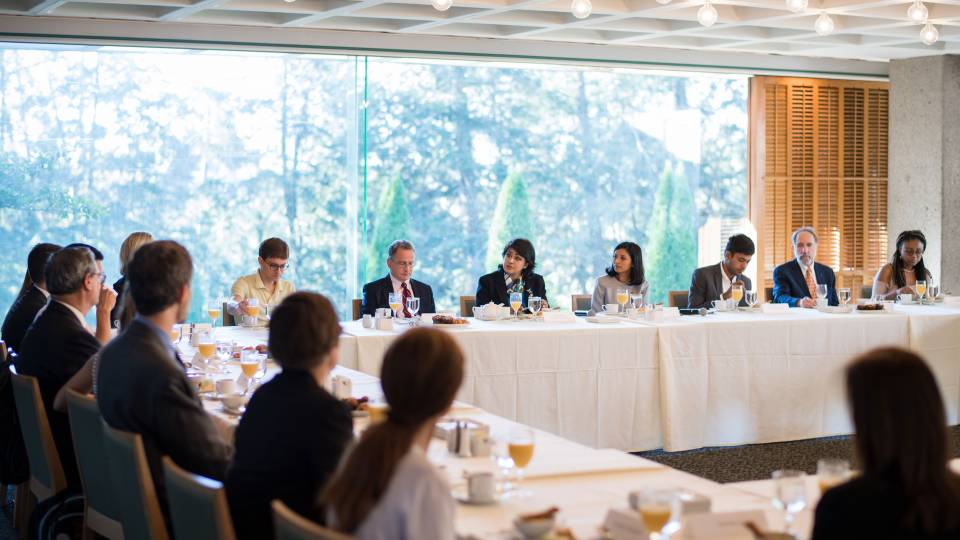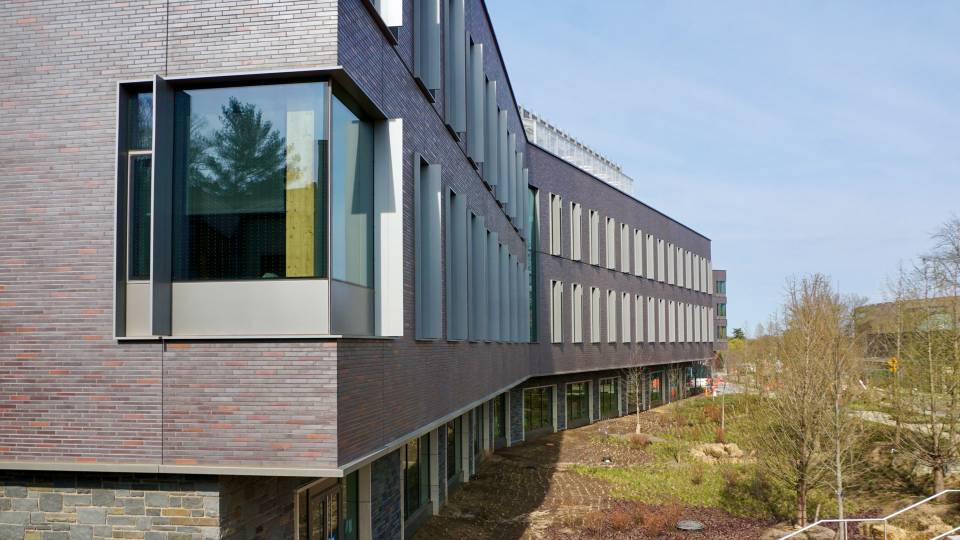Princeton welcomed visitors from the Stockholm Resilience Centre of Stockholm University from Nov. 12-14 to collaborate on key issues related to the environment in a global context. A range of speakers presented at the meeting, "Earth in 2050: Boundaries, Obstacles and Opportunities." Standing at right is Smitha Haneef, assistant vice president, University Services, and co-chair of the Food and Agriculture Initiative at Princeton.

Simon Levin, the James S. McDonnell Distinguished University Professor in Ecology and Evolutionary Biology at Princeton, opens the workshop, setting goals for the two-day session. Levin serves on the SRC board.
Princeton University welcomed researchers from the Stockholm Resilience Centre (SRC) of Stockholm University from Nov.12-14 to collaborate on key areas related to the environment in the global context.
The meeting, "Earth in 2050: Boundaries, Obstacles and Opportunities,” was sponsored by the Princeton International Fund, the Princeton Environmental Institute and the Andlinger Center for Energy and the Environment.
Presentations sparked conversation about feeding the world, urban infrastructure, biodiversity and conservation biology, human behavior, and water quality. The symposium was held in the Julis Romo Rabinowitz Building and Louis A. Simpson International Building.
Professor Simon Levin, the James S. McDonnell Distinguished University Professor in Ecology and Evolutionary Biology at Princeton, serves on the SRC board and led the event.
Levin emphasized the potential of the collaboration: “SRC is the leading institute in the world focused on what makes socioecological systems robust and resilient in the face of a changing environment, and their expertise is complementary to Princeton’s in our quest to build a sustainable future for all humanity," he said. "There was great enthusiasm on both sides, and we look forward to productive partnerships.”
The University has identified environmental studies as an opportunity for academic leadership as part of its strategic planning framework. Reflecting that opportunity, a committee made up of several Princeton departments planned the workshop with the SRC to help shape new directions in environmental studies and research.

Fernando Jaramillo (left), a postdoctoral researcher from Stockholm University, and Lars Hedin, the George M. Moffett Professor of Biology and Chair of the Department of Ecology and Evolutionary at Princeton, discuss their research. Jaramillo studies freshwater availability and changes, from local to global scales. Hedin presented to the working group on sustainable use of soil and water resources.
“We believe that understanding and embracing our role in the environment is critical to our own survival,” said Line Gordon, SRC deputy director and deputy science director. “We thoroughly enjoyed the level of engagements in the discussions, and it was fantastic to advance the thinking on sustainability with such a brilliant group.”
At the meeting, scientists presented their expertise within the context of building a sustainable future for humanity. They also broke out into smaller working groups. By the end of the second day, a few major research themes emerged: feeding the world, urban sustainability and managing complex systems for resilience.
“I really believe that we together can have a powerful role to play in the future,” Gordon said. “I look forward to engaging in the next phase, where we will operationalize some of the discussions in joint research projects on food, urban sustainability and behavioral change.”
Princeton recently launched the Food and Agriculture Initiative, which is educating and engaging students on food and agriculture as a subject of critical inquiry and applied knowledge.

Line Gordon, SRC deputy director and deputy science director, helped to plan the workshop and introduced participants to the SRC. Gordon studies freshwater resources, ecosystem services and food production.
Smitha Haneef, assistant vice president, University Services, and co-chair of the Food and Agriculture Initiative, sees great opportunity in deepening the relationship between Princeton and the SRC. She expects that the University will be seen as a living-learning lab where Campus Dining implements actual solutions for a healthy planet.
“I am really excited to see this global platform come together as we are working with and for our scientists and students to design projects,” she said. “Our goal is to generate pathways and take a solutions-based approach for a sustainable food system at a local, regional, continental and global level. Princeton’s educational environment coupled with SRC’s work on planetary boundaries would provide a unique way for us to take this approach.”
Lars Hedin, the George M. Moffett Professor of Biology and Chair of the Department of Ecology and Evolutionary Biology, agreed. “When it comes to food, the Princeton-SRC collaboration is positioned to capture unique and world-class leadership in this area, by combining Princeton’s strength in fundamental and quantitative knowledge of hydrological-biogeochemical systems with SRC’s strength in human and socioecological dynamics.”







